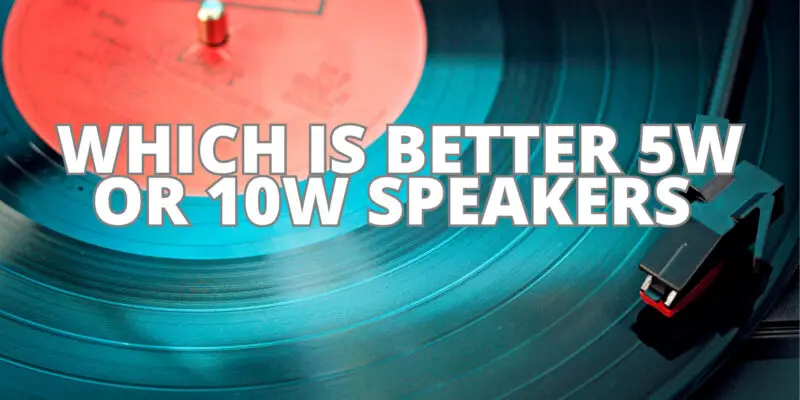When choosing a speaker, one of the critical factors to consider is its power output, typically measured in watts (W). The power rating of a speaker can significantly impact its performance, volume capabilities, and suitability for different applications. In this article, we will explore the differences between 5W and 10W speakers to help you determine which one may be better suited to your specific audio needs.
Understanding Speaker Wattage
Before delving into the comparison, it’s essential to understand what speaker wattage represents:
- Wattage (W): This measurement indicates the power handling capacity of a speaker. It refers to the amount of electrical power the speaker can handle without distortion or damage. Wattage can be categorized into two main types: RMS (Root Mean Square) power and peak power.
- RMS Power: The RMS power rating represents the continuous power that a speaker can handle over an extended period without overheating or damaging the speaker components. It is a more practical measure of a speaker’s power handling capacity.
- Peak Power: Peak power indicates the maximum short-term power the speaker can handle. While it can handle brief bursts of higher power, sustained use at peak power levels can damage the speaker.
5W Speaker: Pros and Cons
Pros:
- Energy Efficient: 5W speakers are generally more energy-efficient, making them suitable for battery-powered or portable devices like smartphones, tablets, and small Bluetooth speakers.
- Compact and Lightweight: Due to their lower power requirements, 5W speakers tend to be smaller and lighter, making them easy to carry and install in tight spaces.
- Suitable for Personal Use: A 5W speaker can provide sufficient volume for personal listening in quiet environments or for individual use.
Cons:
- Limited Volume: 5W speakers may not be suitable for larger rooms or outdoor settings, as their limited power may result in lower volume levels and reduced sound projection.
- Limited Bass: Lower wattage speakers may struggle to reproduce deep bass frequencies accurately, affecting the overall sound quality, especially for bass-heavy music genres.
10W Speaker: Pros and Cons
Pros:
- Greater Volume: A 10W speaker can produce higher sound levels and is better suited for larger rooms, outdoor gatherings, or situations where more significant volume is required.
- Improved Sound Quality: With higher power handling, 10W speakers can provide better overall sound quality, including clearer mids and more accurate bass reproduction.
- Versatile Use: 10W speakers are versatile and can be used for personal listening, as well as in small parties, gatherings, or outdoor activities where a moderate sound boost is necessary.
Cons:
- Heavier and Bulkier: In general, 10W speakers may be larger and heavier than their 5W counterparts, which can affect portability and ease of installation.
- Higher Power Consumption: 10W speakers may consume more power, which can be a consideration if you’re using battery-operated devices.
Choosing Between 5W and 10W Speakers
The choice between a 5W and a 10W speaker depends on your specific requirements and intended use:
- 5W Speaker: If you primarily need a speaker for personal listening, portability, or use in small indoor spaces, a 5W speaker may be sufficient. They are also ideal for battery-powered devices.
- 10W Speaker: If you require a speaker for larger rooms, outdoor gatherings, or situations where higher volume and better sound quality are essential, a 10W speaker is a better choice.
Ultimately, the “better” speaker wattage depends on your needs and the intended application. Consider where and how you plan to use the speaker, the volume levels you require, and the importance of sound quality to make an informed decision.


